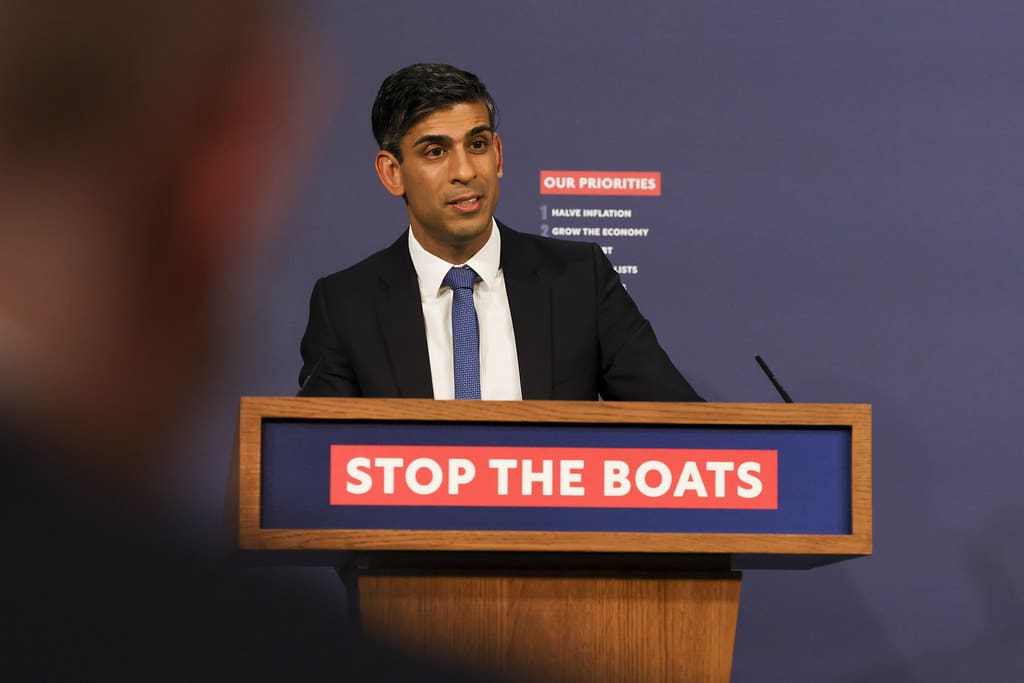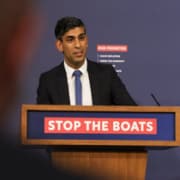Avoid a Hostage to Fortune Unless You Have Really Thought About It
It is a simple but hard-to-follow rule for many leaders: avoid committing or promising something in the future, that may not be deliverable.
Rishi Sunak’s political difficulties today are in part created by his bold decision to ignore this rule.

Of the Prime Ministers five pledges (easily found here on the government website), two are particularly definite and easily failed.
One was to halve inflation by the end of the year and the other was to ‘stop the small boats’.
Most commentators back at the beginning of the year thought halving inflation was so likely to happen that the government was not going to be required to do much. It was predicted to happen whatever the Treasury did (although that looked less certain by the summer). At the time it was probably a safe commitment.
However, pledging to ‘stop the boats’ may in hindsight seem a schoolboy error. Indeed, a classic ‘hostage to fortune’. Everyone understood it would be difficult to do and it is so specific that there is no room to fudge. ‘Stop the boats’ appears to mean to completely and utterly stop all the small boats bringing migrants across the channel to the UK.
A hostage to fortune can be defined as:
An act, commitment, or remark which is regarded as unwise because it invites trouble or could prove difficult to live up to.
And while some leaders, like the Prime Minister, will flout this guidance fully knowing the risk they are taking, there are many other instances where people casually commit to future numbers or ideas without realising that they may live to seriously regret it. Phrases like ‘we want to be number one in the market’, or ‘we expect to win 30% of the market’ are the sort of casual business commitments that can cause negative coverage.
As a rule, the PR advice for businesses is not to release any forward-looking numbers. Internal business targets are best not shared with journalists, it is too easy to check back later and find they have been missed. Missing a target can be perceived as much more negative than it really is.
In fact, hard and fast commitments of any sort should only be shared if some time and effort has gone into making sure the promise is deliverable.
Of course, none of that means that journalists won’t ask questions that try to elicit a commitment: often this can harden up a soft story. As a spokesperson, you should be able to spot that happening and sidestep any such request.
We have written before about the ‘hostage to fortune’ issue, which particularly dogged the government during the pandemic. You can read that blog here.
Image: Rishi Sunak – Flickr
https://creativecommons.org/licenses/by-nc-nd/2.0/
- A Behind-the-Scenes TV Cheat… and Why It Works - November 26, 2025
- What Should I Do With My Hands? - November 19, 2025
- A Jar of Marbles and the Power of a Simple Story - November 12, 2025




Leave a Reply
Want to join the discussion?Feel free to contribute!